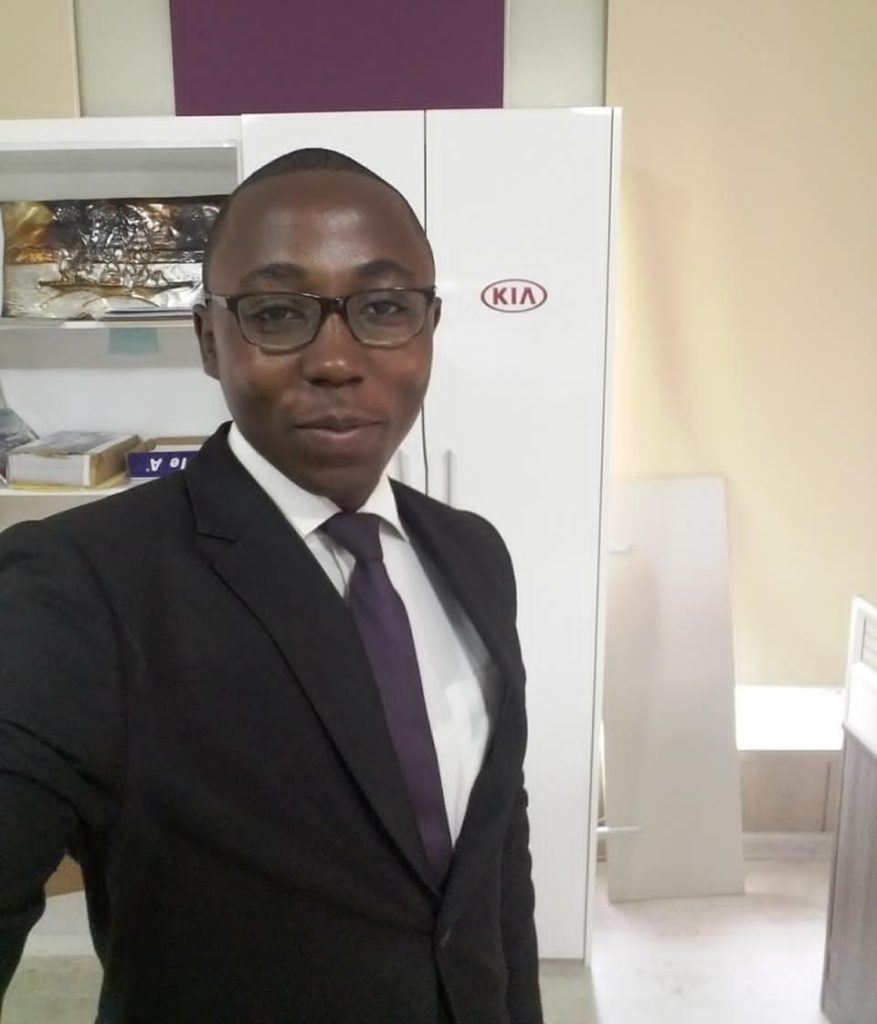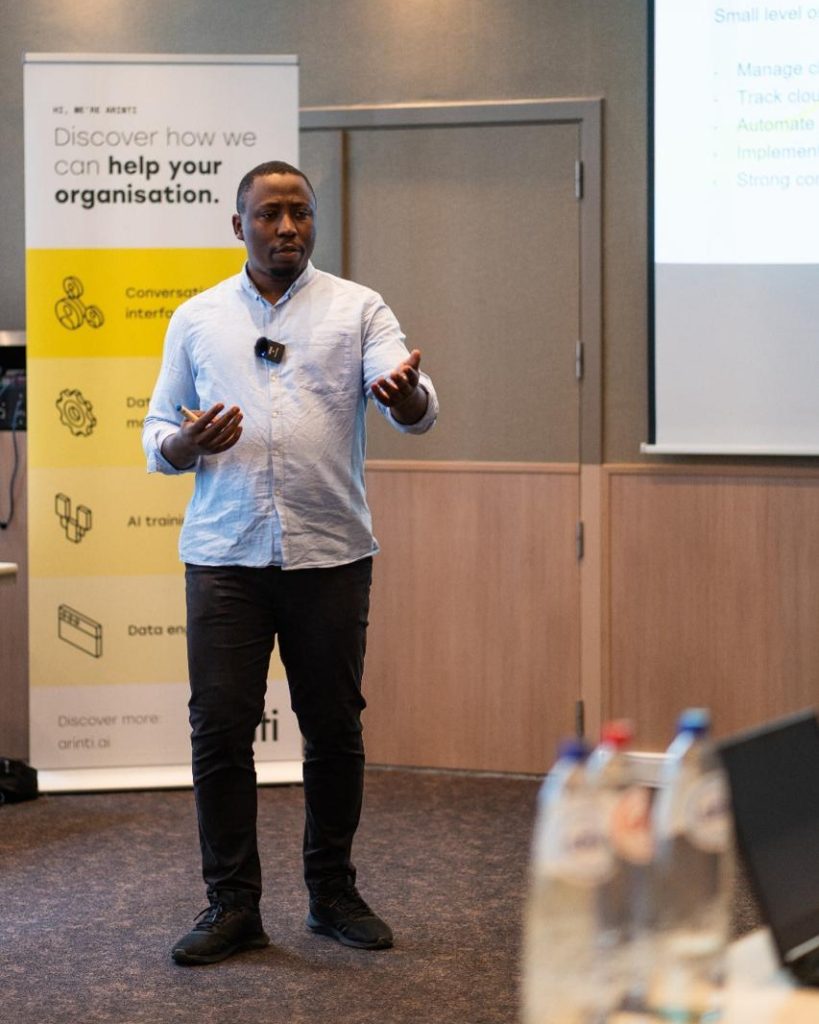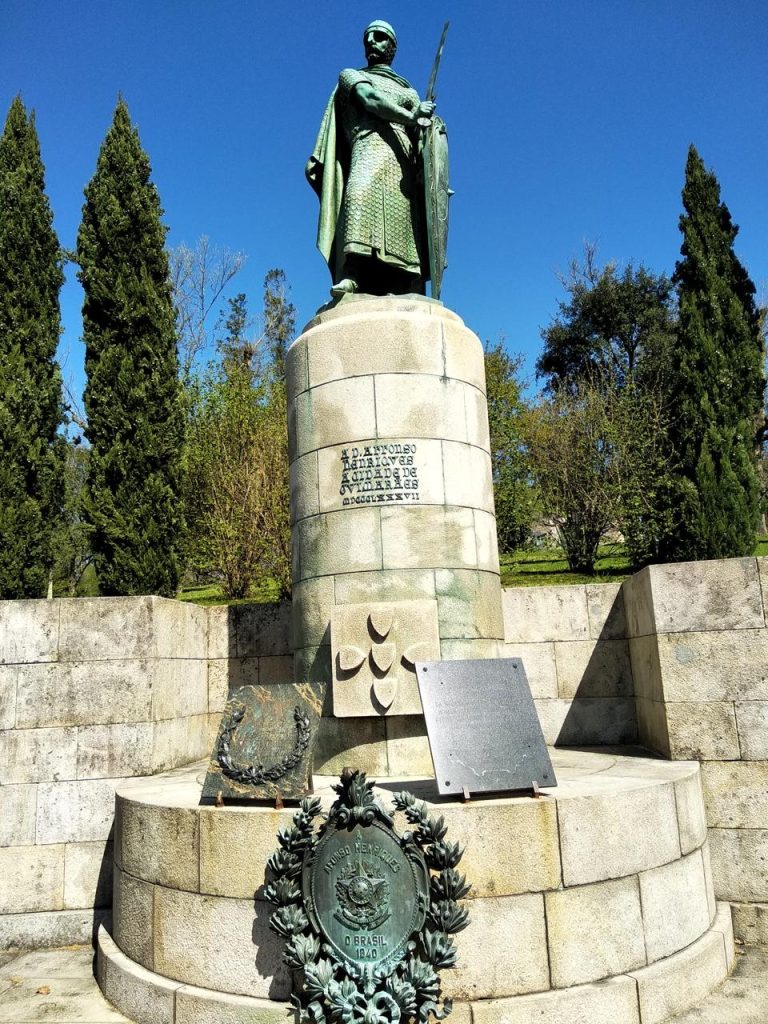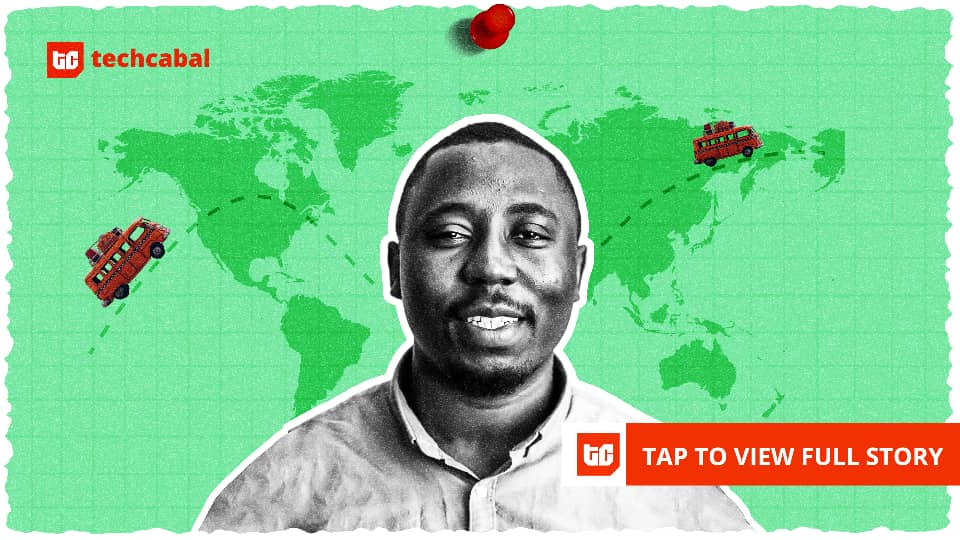Travelling through Europe for work, Jephte Ioudom Foubi often finds himself comparing the places he visits with home. He notices how data flows differently across industries, how cloud infrastructure evolves, and how business decisions often hinge on subtle details that are easy to overlook.
On one afternoon flight between Brussels and Lisbon, he caught himself smiling at the thought. This was not the life he imagined as a business student in Cameroon. Yet somehow, he had built a life that allowed him to work with companies across Europe, travel across Africa, and live quietly in Portugal, running his own tech consulting business.
The journey stretched further back than the moment he registered his company. It began with curiosity—it always does.
“I just became fascinated with everything that had to do with tech,” Ioudom Foubi said. “From that moment, I would say I touched everything from 3G to how the world was going to be interconnected.”
That fascination would eventually lead him away from the corporate track in Cameroon, across continents, and into a career he had not even planned for.
Beginnings: from business student to accidental technologist
Ioudom Foubi grew up in Cameroon, studied in Cameroon, and imagined he would build a career in management. He studied business administration and went on to make his mark in the corporate world, working in management and business-facing roles. In 2014, he joined Ericsson, the global technology infrastructure firm, as a wide-eyed intern supporting MTN’s 3G rollout in Cameroon at the time.
For the first time, he saw the delicate, invisible machinery that powered the modern world. He supported logistics for one of the country’s most consequential telecom infrastructure projects. He spent days onboarding equipment in warehouses, preparing deployments, and handling work orders for field teams. He remembers the pressure. A single damaged component could’ve delayed the entire rollout.
But what stayed with him from that internship was a modest assignment that revealed how tiny inefficiencies can choke an entire operation. Field technicians often returned from remote sites without the small expense receipts they needed for fuel, food, and transport reimbursements. Without those receipts, reimbursements stalled, which created tension between teams and slowed field operations. Management asked him to look into why the existing reporting tools were not helping staff capture this basic information properly.
During that process, another intern showed him an automation tool that could collect responses instantly and organise the data automatically. It was a small discovery, but it changed the entire workflow. Instead of printing pages, handing them out manually, and spending days compiling results, he could now watch submissions come in live as technicians filled a form.
“I could see the results immediately as people were responding,” he said. “It took me maybe a day to compile everything, and I did a presentation for the whole company.”
It stayed with him because it was the first time he saw how a simple digital improvement could unclog a system of people, processes, and tools. It taught him that technology was not abstract.
After Ericsson, Ioudom Foubi carried that growing interest in technology into his next role at Kia Motors in Cameroon. He joined as a marketing and sales assistant.

Every month, he went into the field collecting quantitative and qualitative data from dealerships and competitors. The market for cars was competitive, so understanding pricing shifts, stock levels, and customer preferences mattered. His data reports informed decision-making at Kia Motors more than he expected.
“I would collect the data, make recommendations to management, and then it would influence our strategy, even with the seemingly little things,” said Ioudom Foubi. “That was when I realised I was already drifting away from pure business and into analytics.”
Those months pushed him to start asking bigger questions.
“What would it look like to work fully in technology instead of circling it from the business side? Could I switch fields entirely?” he asked, recalling existential career questions he had considered.
In search of answers, Ioudom Foubi began researching schools that would let him pivot from management to a technical field, a move that was difficult to execute inside Cameroon, he said. That search opened the door that eventually led him to Portugal. In 2018, he moved to Portugal on a study visa to build a company where he now consults on data and business intelligence for large enterprises.
The leap into tech consulting
If you ask Ioudom Foubi why he chose Portugal over everywhere else, he answers like someone who has done the long, exhausting homework, laying out his reasons the way someone might tick through a well-prepared grocery shopping list: Quality of education, check. Language—English is widely spoken, check. Migration feasibility, check. Tech industry growth, check. And importantly, a strange but real influence from a television show. Check.
He compared programmes across Europe and the US. Portugal stood out because the best business intelligence programme at the time was at NOVA Information Management School in Lisbon, according to Ioudom Foubi.
It also helped that the programme was fully in English, unlike Germany’s mixed-language offerings, and that Portugal had just secured a ten-year hosting right for the Web Summit, a critical annual tech conference that brings in business leaders from all over the world to talk about technology and opportunities for Portugal to become a major hub in Europe. To Ioudom Foubi, it signalled an upcoming influx of global tech companies.

But there was also a warmer, more personal nudge to his choice.
“There was a telenovela my mom was watching,” he said. “The whole show took place in Portugal, and it showed a lot of the daily life of Lisbon and Porto. When I was watching it with her, I realised later that it influenced me because I could picture myself living there.”
He applied, got accepted, travelled to Nigeria to process his visa, and moved to Lisbon.
When he finally moved to Portugal on a study visa, he expected a strategy-heavy business programme at NOVA. Instead, at the last minute, the curriculum shifted to addressing technologies that were emerging at the time, like data engineering and AI, becoming more technical. Ioudom Foubi didn’t back down.
“It was like 90% tech-focused and 10% management,” he said. “If you are a foreigner in a country and you come for a programme, you just have to keep doing it.”
The programme became his crash course into data, AI, and the startup world. He worked part-time in a startup focused on AI, then joined a graduate programme with Accenture during the peak of the pandemic, right when companies across Europe were racing to migrate to the cloud.

Cloud migration became his opening.
By the time he completed his master’s in 2021, a pandemic was changing the world of work. Companies everywhere were desperate, said Ioudom Foubi. Instead of waiting for job applications to pan out after finishing his studies, he decided to bet on himself.
“I was like, you know what, let me go and create my own consulting company,” he said. “Even if I’m a foreigner. I probably had just one year of experience [in tech]. But I was going to bet on myself.”
He registered his consulting company in January 2021.
Portugal makes it easy for people to open a sole-trader activity. Anyone with a tax number and an accountant could offer services and invoice clients. Ioudom Foubi’s first clients came through LinkedIn. He applied for remote contractor roles across Europe. Sometimes he worked through HR outsourcing companies. Other times, through small IT consultancies that needed extra hands.
As he delivered projects, referrals started to flow in. HR firms he had worked with recommended him to others. Recruiters reached out. People he met at conferences or evening talks passed his name along.
His work evolved with each new contract. He began with cloud migration, then expanded into data engineering, building data warehouses and analytics platforms, and integrating Microsoft Azure technologies. His client base grew to include companies in Belgium, Germany, and the Netherlands. To his own surprise, he never ended up working for a Portuguese company, even though Portugal remained his base.
Portugal offered practical advantages he had not fully understood until he lived there. Time zones aligned neatly with Europe and were workable with both the US and parts of Asia.

The cost of living—especially outside the capital, Lisbon—was manageable. The education system produced highly skilled tech graduates at competitive rates, a fact that attracts global companies and makes it fertile ground for contractors like him.
“A lot of the master’s degrees around tech in Portugal are very hands-on,” he said. “Even as a student, you already have an idea of certain skills,” said Ioudom Foubi. “For the pay that you get, which might be 20% less than in France or Germany, you can have a very comfortable life.”

It also offered him a clear legal path. His consulting business, which he maintains by paying taxes and social security, renews every three years, becoming his anchor for residence.
Migration, belonging, and the unexpected door that opened in Portugal
Ioudom Foubi’s migration path to Portugal followed the study route—not because it was glamorous, but because it was the only reliable path available for someone switching from business to tech, he said.
“I could have taken the work permit direction, but that would have been more complicated,” he said. He had no tech work experience at the time and would’ve struggled to attract employers.
Portugal has long been known as a welcoming destination, especially for tech workers and crypto enthusiasts. The country’s favourable tax environment, the growing concentration of blockchain companies, and its remote-work friendliness have drawn thousands of professionals.

“A lot of blockchain companies open offices every month in Portugal,” he said. “And they recruit from everywhere in the world.”
But immigration is shifting. Policies like the former Declaration of Interest, which once made it easier for foreigners to transition into residency, have become unstable due to political changes. Yet Portugal remains one of the most accessible countries in Europe, particularly for those who are already inside its borders—students, freelancers, and residents. The harder part, Ioudom Foubi notes, is for Africans trying to move directly from the continent.

Even then, opportunities remain. Companies still sponsor work visas, especially in tech, but competition is global. The bar is high, said Ioudom Foubi. For him, the journey has been worth it. Living in Portugal opened doors not only to European work but also to deeper professional curiosity. Travelling between Europe and Africa, he builds relationships that fuel his consulting work.

He has worked with Euroclear, a Belgium-based financial infrastructure company, in Europe and now collaborates with similar companies in Ghana and Nigeria. Sometimes the African implementations are better. Sometimes Europe offers lessons Africa hasn’t adopted yet. But seeing both sides, he argues, is what gives a consultant an edge.
“The more you travel, the more you try to understand the technology maturity of industries,” said Ioudom Foubi. “It can help you create more opportunities for yourself.”
We would love to hear your thoughts on this edition of Digital Nomads. Share your ideas with us here.








